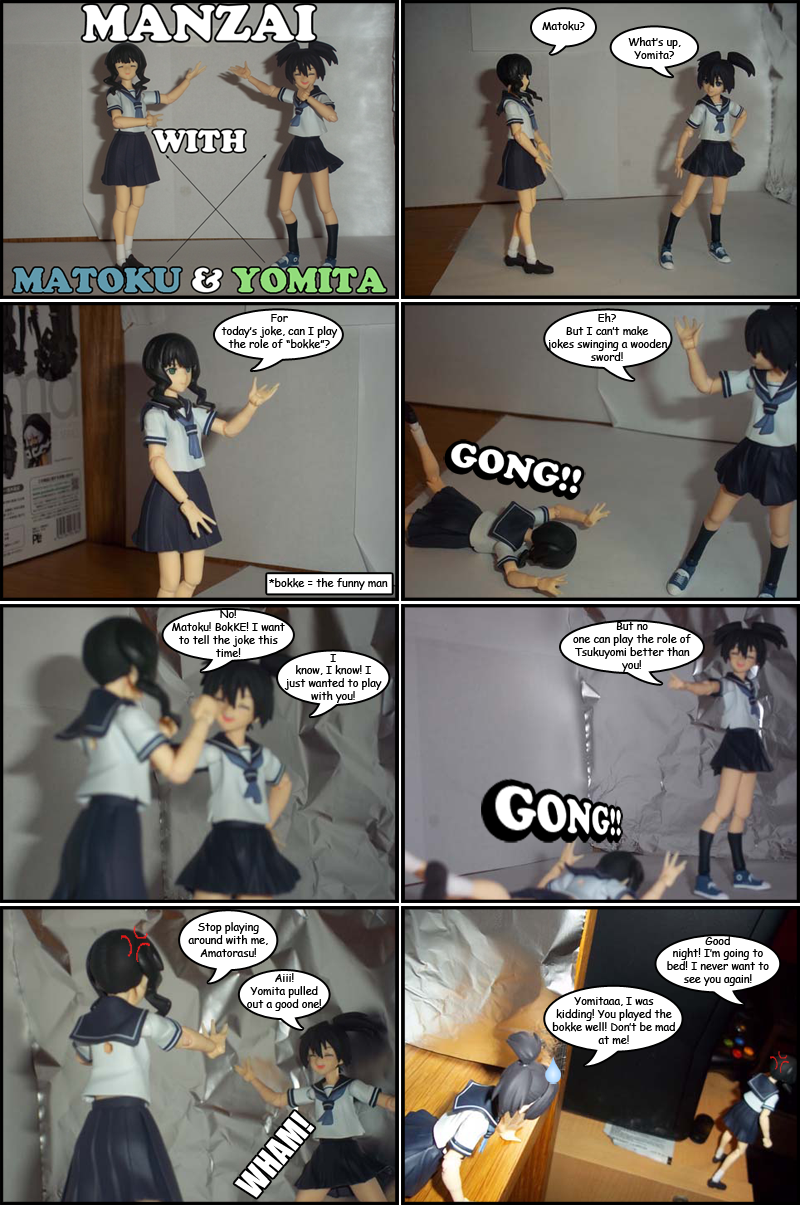Third Manzai - Like Night and Day
Kaji Motomiya on Nov. 6, 2011
-THE JOKE-
The jokes in this comic are mainly Japanese word-play related, though they follow a consistent theme. They involve Japanese legends I learned from playing Persona 4 while playing with the roles used in Manzai groups.
The first joke is a play of the word “bokke” (as you can see is the funny man) and a wooden sword, “bokken”, a wooden sword used in Japan and often depicted in popular anime media as used by gangster-type characters.
Next is where is gets a bit hazy. Tsukuyomi is a play on Yomita's name, “Yomi,”, and the manzai term, “Tsukomi”, but made to look like Tsukuyomi, the moon god in Shinto and Japanese mythology. He is one of the three children of Izanagi. Yomita then retorts by calling Matoku “Amatorasu”. This is also a play, using Matoku's name “Mato” and the sun god “Amaterasu”. Like Tsukuyomi, Amaterasu is one of Izanagi's children (the third and last being Susanoo).
Finally, the last joke, though very vague, is a play on the legend. Uke Mochi was the goddess of food and was holding a feast in which Tsukuyomi represented Amaterasu for. But though the food was delicious and good, the methods of preparing were not to Tsukuyomi's taste (the food was made through the mouth and anus…). So he killed her. When Amaterasu got wind of this, she was so angered by Tsukuyomi's actions that she vowed never to see her again and moved to the other part of the sky, making night and day (which is why the sun and moon never meet…in Japanese mythology…). The joke reverses this role with Yomita's words taking Tsukuyomi to heart while giving off the same anger Amaterasu felt.
This joke was…mighty difficult, but I've been wanting to pull this off for some time.









